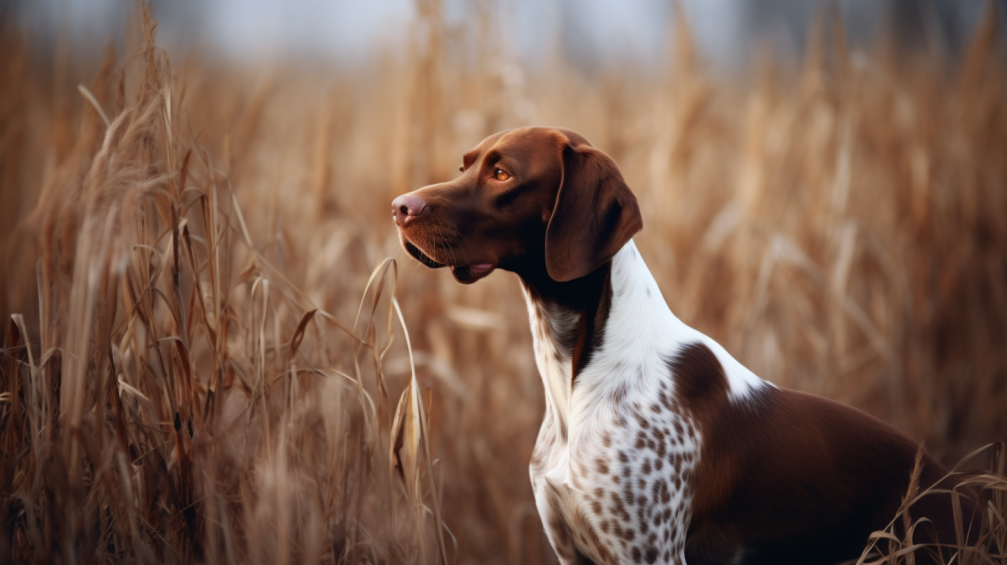Hunting dogs have been man’s faithful companions in the pursuit of game for thousands of years. Whether flushing out birds, retrieving waterfowl, tracking deer, or chasing down small game, these canines exhibit remarkable skills and instincts that make them indispensable to hunters. However, owning a hunting dog comes with responsibilities beyond just training and care. It also involves understanding their needs, ensuring their health and safety, and even considering pet insurance to safeguard against unexpected expenses. This article delves into the world of hunting dogs, exploring their training, necessary equipment, and the feasibility of pet insurance for these specialized companions.
Understanding Hunting Dogs
Hunting dogs are typically categorized into several types based on their roles:
- Retrievers: Primarily used for retrieving waterfowl, retrievers are trained to locate and bring back downed birds to their handler.
- Pointers and Setters: These breeds specialize in locating game birds and indicating their presence by either “pointing” or “setting” (freezing in position).
- Flushers: Flushers are trained to drive game out of cover, such as thick brush or wooded areas, making it easier for hunters to take a shot.
- Scent Hounds: These dogs have an exceptional sense of smell and are adept at tracking game by following their scent trail.
- Sighthounds: Known for their speed and agility, sighthounds like Greyhounds and Whippets excel in coursing and chasing down prey.
Each type of hunting dog requires specific training techniques and equipment tailored to their role in the hunt.
Training Hunting Dogs
Training a hunting dog requires patience, consistency, and an understanding of the breed’s natural instincts. While some hunters prefer to train their dogs themselves, others enlist the help of professional trainers to ensure the best results.
Basic Training Principles:
- Obedience: Teaching basic commands such as sit, stay, come, and heel lays the foundation for effective communication between the handler and the dog.
- Socialization: Exposing the dog to various environments, people, and other animals from a young age helps prevent fearfulness and aggression.
- Introduction to Game: Gradually introducing the dog to the sights, sounds, and smells of the hunting environment builds their confidence and reinforces their natural instincts.
- Specialized Training: Depending on the dog’s role, specialized training techniques such as retrieving, pointing, tracking, or flushing are taught to hone their hunting skills.
Training methods should be positive and reward-based, using treats, praise, and play to reinforce desired behaviors while discouraging undesirable ones.
Necessary Gear for Hunting Dogs
Equipping a hunting dog with the right gear is essential for their safety, comfort, and effectiveness in the field. Some essential items include:
- Collar and ID Tag: A durable collar with an attached ID tag containing the dog’s name and owner’s contact information is crucial in case they get lost.
- Leash: A sturdy leash ensures the handler can maintain control over the dog, especially in areas where they need to be restrained.
- Hunting Vest: A brightly colored hunting vest enhances the dog’s visibility in dense cover and helps distinguish them from game animals.
- Whistle: A whistle is used for long-distance communication with the dog, signaling commands and recalls even in noisy environments.
- Water and Food Bowls: Keeping the dog hydrated and nourished during long hunting trips is essential for their well-being.
- First Aid Kit: A portable first aid kit containing items like bandages, antiseptic wipes, and tweezers is indispensable for treating minor injuries in the field.
- Safety Gear: Depending on the hunting conditions, additional safety gear such as protective goggles or boots may be necessary to safeguard the dog from hazards like thorns or rough terrain.
Pet Insurance for Hunting Dogs
Pet insurance is a financial safety net that helps cover the cost of veterinary care in case of illness, injury, or accidents. While most pet insurance policies cover common ailments and routine care, insuring a hunting dog may come with unique considerations:
- Coverage for Hunting-Related Injuries: Some pet insurance providers offer coverage for hunting-related injuries, including wounds sustained from encounters with game animals or accidents in the field.
- Preventive Care: Regular veterinary check-ups, vaccinations, and parasite prevention are essential for hunting dogs’ health and performance. Pet insurance plans that include coverage for preventive care can help offset these expenses.
- Liability Coverage: In addition to medical expenses, liability coverage protects hunters from potential legal claims resulting from their dog’s actions while hunting, such as trespassing or causing property damage.
- Exclusions and Limitations: It’s crucial to carefully review the terms and conditions of a pet insurance policy to understand any exclusions or limitations related to hunting activities. Some insurers may impose restrictions or higher premiums for insuring hunting dogs due to their increased risk of injury.
Ultimately, the decision to purchase pet insurance for a hunting dog depends on factors such as the dog’s breed, age, health status, and the level of risk involved in hunting activities. Consulting with a veterinarian and researching different insurance providers can help hunters make an informed choice that best suits their needs and budget.
Conclusion
Hunting dogs play a vital role in the age-old tradition of hunting, combining instinct, athleticism, and companionship to enhance the hunting experience. Training these specialized canines requires dedication and skill, along with the right gear to ensure their safety and effectiveness in the field. While pet insurance can provide financial protection against unexpected veterinary expenses, hunters must carefully evaluate their options and choose a policy that aligns with their dog’s needs and the demands of hunting activities. With proper care, training, and consideration for their well-being, hunting dogs can continue to be valued partners in the pursuit of game for generations to come.

